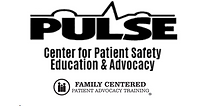Disparities and Bias in Health Care
American Medical Association
November 2020
New policy adopted by physicians at the American Medical Association’s (AMA) Special Meeting of its House of Delegates (HOD) recognizes racism as a public health threat and commits to actively work on dismantling racist policies and practices across all of health care.
Addressing Racism
August 2020
A Joint Statement from Obstetrics and Gynecology: Collective Action Addressing Racism
Health Care Has a Bias Problem: Here’s How to Fix It
November 2019 Bias in medicine — based on race and sex — is a well-documented problem. It’s a problem because the health care system has historically marginalized the medical concerns of people of color and women, which has led to worse health outcomes.
Does Implicit Bias Affect Clinical Decision Making?
May 2019 Results showed that Black Americans and other minority groups receive less effective medical care than White Americans.
The stats are against black moms and babies. So why aren’t we more worried about prematurity?
November 2018 This month, the March of Dimes released its annual premature birth report card, and the data revealed significant racial/ethnic and geographic disparities of babies that have a higher chance of a preterm birth based simply on race and Zip code.
Black Patients Miss Out On Promising Cancer Drugs
September 2018 A ProPublica analysis found that black people and Native Americans are under-represented in clinical trials of new drugs, even when the treatment is aimed at a type of cancer that disproportionately affects them.
Implicit Biases Have an Explicit Impact on Healthcare Outcomes
September 2018 Implicit biases may be unconsciously formed, but they can have real impacts for patients in the healthcare system if physicians or other healthcare providers don’t take the time to recognize their own implicit biases.
Why Americas Black Mothers and Babies are in a Life-or-Death Crisis
April 11, 2018 For black women, the rate of preeclampsia / eclampsia was 70 per 1,000 deliveries in 2014—60 percent higher than for white women (43 per 1,000).
Pulse Center for Patient Safety Education and Advocacy (CPSEA) is dedicated to raising awareness about patient safety through education, advocacy, and support.
We envision a world in which the patient's voice is heard and no one is harmed by healthcare.
